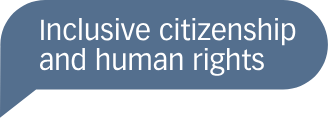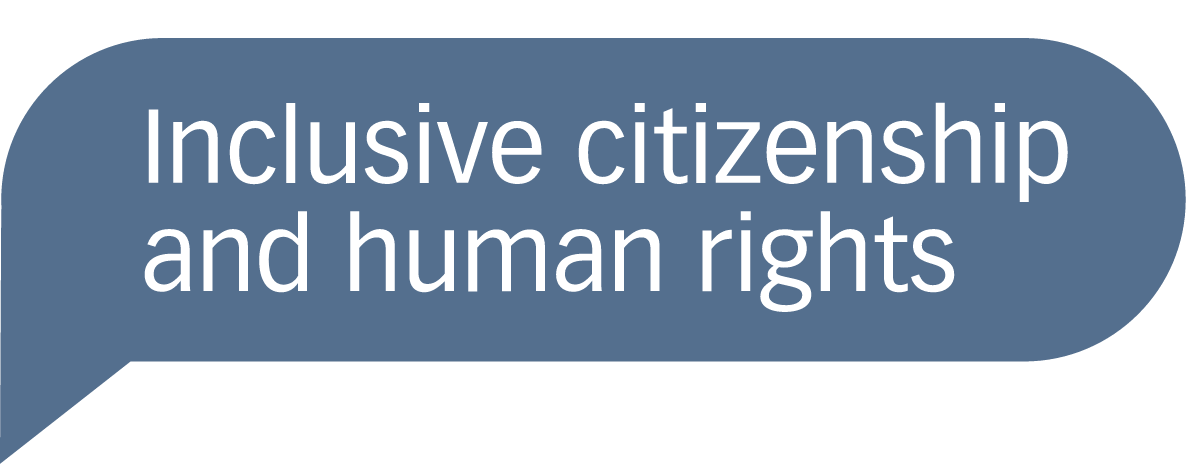
What is Inclusive Citizenship Education?
Inclusive citizenship is based on the idea that all individuals, regardless of identity, status, or background, have the right to participate fully and equally in society. It emphasizes belonging, recognition, and equal access to rights, resources, and opportunities. Inclusive citizenship challenges discrimination and exclusion on the basis of religion and other identities.
How does inclusive citizenship education contribute to fostering such understanding, and why is it important?
Video: What is Inclusive Citizenship? Fadi Daou, Director of Adyan Foundation in Lebanon, on the concept of inclusive citizenship.
Tools for Inclusive Citizenship Education
Inclusive citizenship education empowers educators and civil society organizations to support young people in becoming active members of society who value and respect different identities, beliefs, and experiences.
This approach to education equips learners with the knowledge, skills, and values needed to contribute constructively to a diverse society. It strengthens social cohesion and prepares individuals to navigate complex global challenges. By fostering an understanding of one’s rights and the rights of others, especially those of marginalized groups, this approach helps combat discrimination and promote equality.
To support educators in bringing these values into their teachings, our learning platform offers a variety of tailored resources, such as courses, expert interviews, articles, and video stories. These tools are designed to help educators prepare learners for civic participation, rooted in principles of human rights and inclusion.
More tools have also been produced by our partners, such as Attalaki’s platform Eunoia and the Dembra project by the HL-senteret, which you can access below.
Pedagogical Approaches to Inclusive Citizenship Education
Inclusive citizenship education emphasizes independent thinking and reflection, inviting learners to explore complex social realities, such as inequality, cultural diversity, and societal challenges.
Key pedagogical approaches include:
- Engage Discussions: Encourage students to challenge stereotypes and biases, particularly toward religious minorities, through guided discussions.
- Learning Through Experience: Use case studies and real-life examples to make abstract concepts like social justice and human rights tangible. Incorporating film can also be an effective tool to show different narratives. Read more about the use of film here.
- Collaborative Learning: Foster respect for diversity by involving students in group projects where they share perspectives and reflect on different cultural contexts, mirroring real-world collaboration in diverse societies.
- Human Rights-Based Education: Integrate human rights education into the curriculum, ensuring students understand the principles of equality, justice, and inclusion as outlined in the international framework of human rights.
Among the various learning and theoretical approaches used throughout this platform, the main one used on the ICHR platform is the Narrative Approach. Read more about our approaches here.
Tips: Exercise towards an inclusive learning environment
Counter-Narrative: It seems to be a part of human identity-building at many social levels and in various contexts to create stories about who “we” and “they” are. Such narratives are often based on religious, ethnic, social, national, or other divides. These narratives may be inclusive or exclusive, positive or negative.
For instance, minority groups may face exclusion, discrimination, and human rights violations, along with hate narratives that target them based on their beliefs, ethnicity, and gender identities. These discourses may use metaphors, comparisons, and symbols designed to dehumanize or stigmatize particular groups. A majority-minority conflict can also impact minority nationality, as the majority rejects their identity within the national narrative.
One strategy to challenge such rhetoric is through counter-narratives. This approach involves presenting stories and messages that directly challenge stereotypes by offering alternative perspectives and promoting inclusion. For instance, minorities may present their self-understanding and also their history in the country as a response to group hostility or ignorance. Hate narratives can be a key driver of group hostility, shaping perceptions and influencing exclusionary attitudes. Understanding these narratives provides insight into how prejudice manifests across different groups, from ethnic to religious communities.



